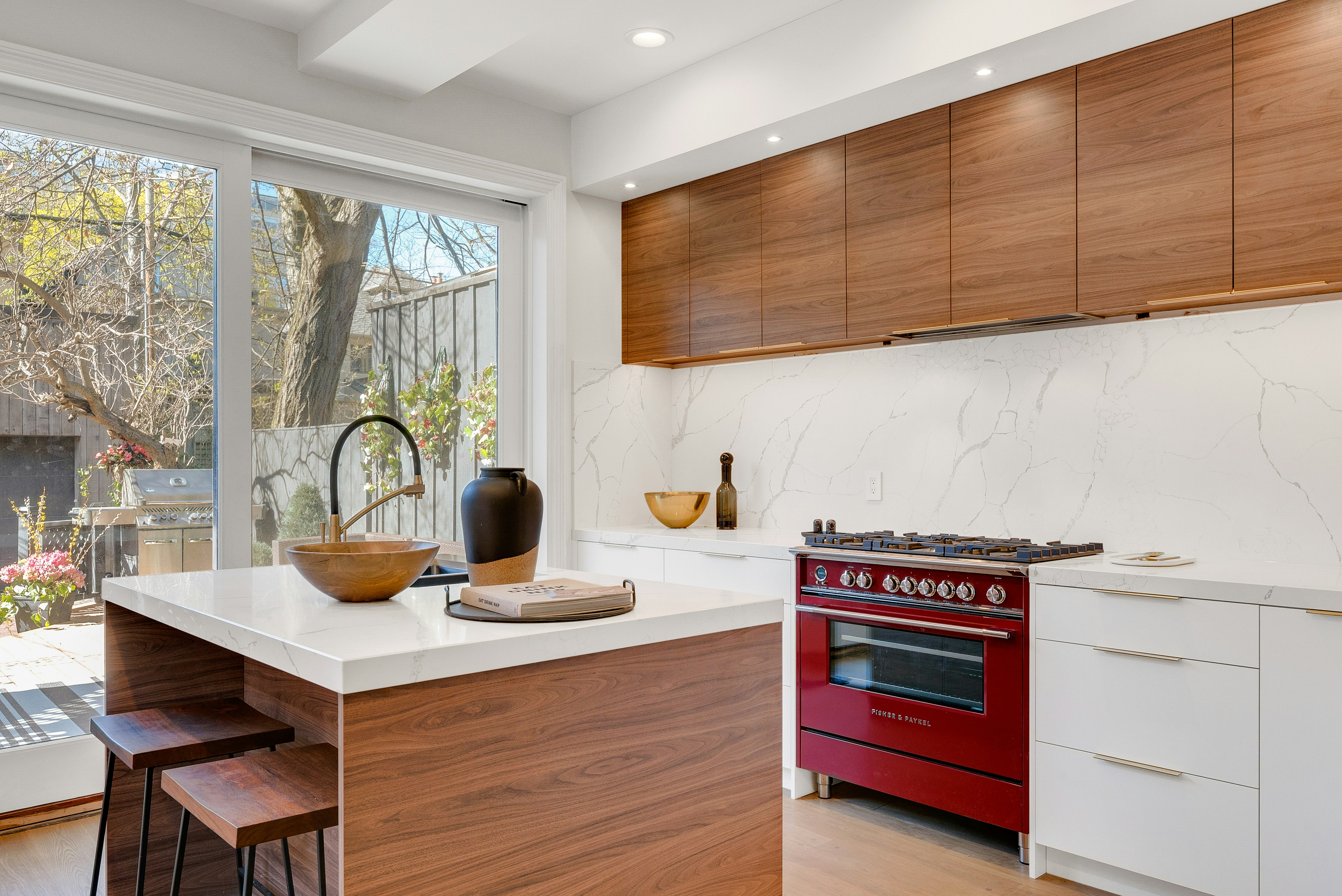Understanding Kitchen Renovations: What’s at Stake?
Kitchen renovations represent both a significant investment and an opportunity to enhance a home’s appeal. The kitchen, often referred to as the heart of the home, is a space where families gather and entertain. Therefore, an aesthetically pleasing and functional kitchen can greatly influence a home’s overall market value. Homeowners considering a kitchen renovation must carefully weigh the financial implications against the potential return on investment (ROI).
Typically, a kitchen renovation can range substantially in cost, from a few thousand dollars for minor updates to over $50,000 for comprehensive remodels. Factors affecting these costs include the size of the kitchen, quality of materials, and extent of labor needed. Notably, high-end renovations may yield diminishing returns if they exceed the median home value in the area. On average, homeowners can expect a kitchen remodel to recoup approximately 60% to 80% of its costs upon sale, depending on the local real estate market.
In addition to the monetary aspect, several other factors should be considered before initiating a kitchen renovation. Understanding local trends is crucial; for example, certain styles or features may appeal more to buyers in specific areas. A thorough market analysis can provide insight into popular choices, such as open floor plans or energy-efficient appliances. Furthermore, consulting with real estate professionals can help gauge buyer preferences and expectations, ultimately guiding the renovation process.
While a well-executed kitchen renovation can significantly enhance a home’s value, it is essential to strike a balance between personal taste and market appeal. Homeowners should approach this project with careful planning, aiming to create an inviting space that meets their needs while being mindful of the potential financial impact. A successful kitchen renovation, therefore, requires both aesthetic consideration and sound financial judgment.
Breakdown of My $50,000 Kitchen Renovation
The renovation of my kitchen, which amounted to $50,000, was a comprehensive and multifaceted process. Understanding where these costs were allocated is crucial for homeowners who wish to undertake similar projects. The breakdown of expenses reveals not only the financial commitment but also the importance of strategic planning and decision-making.
To start with, labor costs consumed a substantial portion of the budget, totaling approximately $20,000. This expense encompassed hiring a licensed contractor, skilled tradespeople, and specialized workers such as electricians and plumbers. The complexity of the renovations, which included relocating gas lines and installing new electrical outlets, necessitated hiring qualified professionals to ensure compliance with local building codes. It is essential for homeowners to recognize that investing in reputable labor can prevent costly mistakes in the long run.
Materials accounted for around $25,000 of the overall renovation costs. Here, choices greatly influenced the final bill. I opted for high-quality quartz countertops, which were both aesthetically pleasing and durable. Though more expensive than laminate alternatives, they provided long-term value and appeal. Cabinets were another significant investment; I chose custom cabinetry to maximize space usage and maintain design consistency. While these choices increased expenditure, they also added to the kitchen’s functionality and overall visual impact.
In addition to materials and labor, I incurred about $5,000 in miscellaneous expenses. These costs included permits, equipment rentals, and unexpected issues such as plumbing repairs. Having a contingency budget for such occurrences can alleviate stress during renovations.
Overall, the investment in my kitchen renovation exceeded initial expectations, yet offered valuable insights into the budgeting process. Homeowners should carefully evaluate their priorities and potential areas to economize without compromising quality, ensuring a successful renovation journey.
Assessing the Value: What I Learned from the $15,000 ROI
When undertaking a substantial kitchen renovation, one anticipates a positive return on investment (ROI). In my case, a $50,000 investment yielded only a $15,000 increase in home value, prompting a thorough analysis of the factors contributing to this disappointing result. Primarily, the disconnect between the costs of renovations and the perceived value by potential buyers raised several questions regarding not only my choices but also broader market conditions in Indianapolis.
One key observation was the local real estate market dynamics. At the time of my renovation, certain neighborhoods were in decline, leading to fluctuating home values. Even though my kitchen was modern and aesthetically pleasing, the overall market sentiment played a significant role in how potential buyers valued my home. In a less favorable market, even high-quality renovations may not yield the anticipated financial returns.
Furthermore, the renovations made did not necessarily align with what prospective buyers prioritized. For instance, I invested heavily in luxury appliances and high-end finishes; however, many buyers in the area were first-time homeowners seeking functionality and cost-efficiency rather than luxury aesthetics. This misalignment between my renovations and buyer expectations underscored the importance of understanding one’s target market prior to making significant investments in home improvements.
Additionally, the timing of the renovation was also a crucial factor. Conducting upgrades when supply chain issues affected availability can lead to inflated costs and disruptions, ultimately impacting the overall value perception. The integration of various elements—from neighborhood trends to specific buyer preferences—illustrates how a comprehensive approach is vital for maximizing ROI in kitchen renovations.
Going forward, I have learned to conduct more thorough market analyses and seek buyer feedback before initiating major renovations. This experience has emphasized that anticipating potential returns involves navigating intricate local market conditions, buyer sensibilities, and renovation choices to align expectations and enhance overall value.
Future Renovation Tips: Making Smart Investment Choices
When considering a home renovation, it is essential to approach the project with a clear strategy and informed decisions. Effective budgeting is the cornerstone of a successful renovation. Begin by establishing a realistic budget that encompasses not only the costs of materials and labor but also unforeseen expenses that may arise during the renovation process. It is advisable to allocate an additional 10-20% of the total budget to cover any unexpected costs, ensuring the project remains financially viable.
Choosing the right materials plays a crucial role in maximizing your investment. Homeowners should prioritize quality over aesthetics, as durable materials tend to offer better long-term value. For instance, while high-end finishes may be visually appealing, opting for mid-range yet sustainable materials can yield significant savings without compromising on quality. Additionally, consider sourcing materials from local suppliers, which can often reduce transportation costs and promote community engagement.
Understanding the real estate market is equally vital in informing renovation decisions. Before commencing any renovation, homeowners should research neighborhood trends and buyer preferences. What appeals to buyers in one area may differ significantly in another. Utilizing market data can inform choices regarding square footage, layout modifications, and amenities that are proven to enhance property value. Consulting with local real estate professionals is invaluable, as they can provide insights into trends and preferences that could impact the future resale value of your home.
Moreover, engaging with a real estate agent or appraiser prior to initiating renovations can provide clarity on which improvements are likely to yield the best returns. Their expertise can guide homeowners in making informed, strategic decisions that resonate with potential buyers while also aligning with market expectations. This proactive approach can help mitigate costly mistakes and enhance the overall value of your renovation investments.
If you’re interested in purchasing the item you seek, please click the link for additional details: #americanachoice.
https://amzn.to/3SBN3Oy
AFFILIATE DISCLOSURE: I am an affiliate for this company, I am not a paid employee.
I may receive a commission if you click a link on this page and choose to purchase something.
You can rest assured I will only share things I believe in and will be valuable to you.


